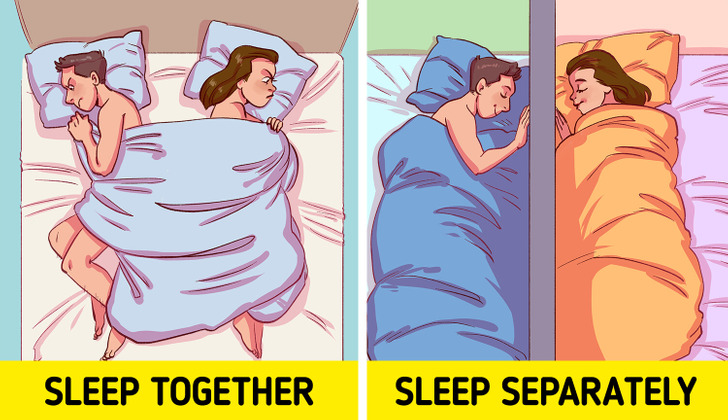We’re all familiar with the obvious red flags in a marriage—constant arguing, a lack of trust, or infidelity. But what about the subtle signs that often go unnoticed? Research and relationship experts have uncovered surprising indicators that could quietly hint at trouble ahead long before the major issues even surface. These unexpected signals might be the key to recognizing when things aren’t as strong as they seem.
1. “Hollywood romance” at the beginning of the relationship

A whirlwind romance may seem like the perfect fairytale beginning to a lasting marriage, but research tells a different story. Couples who dive in with intense passion and over-the-top excitement often find it hard to keep that spark alive over time.
When the honeymoon phase inevitably fades, they may feel disillusioned, mistaking the natural evolution of their relationship for a decline in love. Ironically, marriages that start slower and steadier—without the dramatic flare—often build a stronger foundation and stand a much better chance of lasting the long haul.
2. Avoiding conflict

It may seem like avoiding arguments is the key to a healthy relationship, but in reality, it can be a quiet relationship killer. Sweeping issues under the rug doesn’t make them vanish—it just lets resentment build up over time.
If you’re always biting your tongue to keep the peace, you might be sacrificing your own needs and emotional well-being. Over time, this can slowly chip away at the very foundation of your marriage.
3. If you marry too young.

Age can significantly impact the success of a marriage. According to research from the University of Utah, the sweet spot for tying the knot is between 28 and 32, as people in this age range often have a more mature understanding of what commitment truly means.
Those who marry too young may jump into marriage before fully grasping its complexities—whether it’s managing finances, handling conflicts, or even understanding their own personal growth. While some young couples do make it work, rushing into marriage without a strong sense of self can set the stage for future challenges, potentially increasing the risk of divorce down the road.
4. Not implementing “sleep divorce.”

Sharing a bed might seem like an essential part of marriage, but for some couples, it can become a source of tension. Differences in sleep schedules, snoring, or restlessness can disrupt sleep, leading to resentment and irritability.
Many experts suggest a solution called “sleep divorce”—sleeping separately—as a practical and healthy option for couples dealing with nighttime disruptions. Despite its name, it’s not a sign of marital problems; rather, it’s a way to ensure both partners get the rest they need, helping them stay happy and connected during the day.
5. Contempt for your partner

Few things are as damaging to a marriage as contempt. When one partner constantly acts or speaks from a place of superiority—whether through sarcasm, insults, or dismissive body language—it erodes the foundation of mutual respect.
Rolling your eyes, scoffing, or making hurtful remarks may seem small in the moment, but these behaviors reflect deeper resentment. Relationship experts agree that contempt is one of the strongest predictors of divorce, as it poisons communication and makes reconciliation feel almost impossible.
6. You no longer look forward to being together.

Marriage isn’t just about love—it’s about being best friends, enjoying each other’s company, and truly connecting. While it’s healthy for couples to have their own hobbies and personal time, a major red flag emerges when one or both partners start actively avoiding spending time together.
If date nights, conversations, or even simple moments with your spouse no longer excite you, it often signals an emotional disconnect. Without shared interests or the desire to be around each other, the relationship can shift from a partnership to something that feels more like a burden.
Job interviews are already nerve-wracking, but what if recruiters were secretly testing you in ways you didn’t even realize? Enter the “Chair” Method—a subtle but revealing tactic hiring managers use to assess candidates without them knowing.
credits by: Brightside.me






